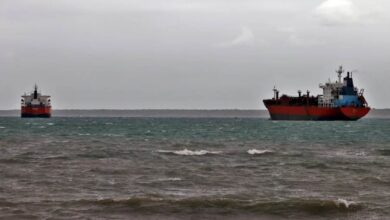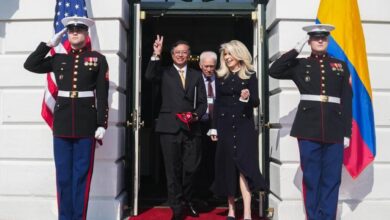Jimmy Carter's Latin American Legacy Is His Brightest Achievement

Former U.S. President Jimmy Carter’s work in Latin America helped transform the region’s political landscape. He championed human rights and democracy, and his actions continue to resonate from Argentina to Paraguay, making him a revered figure across Latin America.
Reimagining U.S. Foreign Policy in Latin America
When Jimmy Carter assumed the presidency in 1977, Latin America was in turmoil. Civil wars ravaged Guatemala and Nicaragua, and nearly every country in the region was under a dictatorship. Even traditionally democratic nations like Chile and Uruguay were ruled by brutal military regimes. Argentina, during its “Dirty War,” orchestrated one of the most violent crackdowns in modern history, with up to 30,000 people killed.
Before Carter, U.S. foreign policy in Latin America often supported dictatorships aligned with American interests, regardless of their human rights abuses. Franklin Delano Roosevelt famously justified backing Nicaragua’s dictator Anastasio Somoza by saying, “He may be a son of a bitch, but he’s our son of a bitch.”
Carter took a radically different approach. He ended support for Somoza’s son, Anastasio Somoza Debayle, and cut military aid to oppressive regimes. His administration actively criticized human rights violations, pushed for free elections, and transferred control of the Panama Canal to Panama, a landmark act of sovereignty for the region.
Vanessa Walker, a professor of Latin American Studies, wrote 2021 that Carter’s policies “reimagined U.S. national interests by pairing human rights with greater respect for national sovereignty, challenging Cold War-era patterns of intervention and support for right-wing dictatorships.”
Standing with Human Rights Advocates
Carter’s unwavering support for human rights was deeply felt across Latin America, especially by those who risked their lives to challenge repressive regimes.
In Argentina, journalist Jacobo Timerman, who exposed the military junta’s atrocities, credited Carter with saving his life. Imprisoned and tortured, Timerman’s release was secured after Carter personally intervened, making direct calls to Argentina’s dictator, Gen. Jorge Videla. Similarly, Argentine Nobel Peace Prize laureate Adolfo Pérez Esquivel, another opponent of the dictatorship, attributed his freedom to Carter’s efforts.
During a clandestine 1978 visit to Brazil, Carter met with São Paulo Archbishop Paulo Evaristo Arns, a human rights advocate. At the time, Brazil’s military regime harshly suppressed dissent. Carter also encouraged the rise of independent labor movements, including the Brazilian Metal Workers’ Union led by Luiz Inácio Lula da Silva, who would later become Brazil’s president.
You know, Lula’s worker group fought against Brazil’s harsh labor rules, and he ended up in jail not long after Carter was no longer president. Lula led Brazil as president, showing the changes that Carter helped start in the area.
Paraguay’s Turn to Democracy
Carter’s commitment to democracy was perhaps most visible in Paraguay. The landlocked nation, under the 35-year dictatorship of Gen. Alfredo Stroessner, was known for rampant corruption, torture, and political repression.
Even after leaving office, Carter advocated for democratic reform in Paraguay. He arrived in 1993 to observe the country’s first democratic election in 182 years despite threats from military leaders. His presence showed his strong commitment to openness and responsibility.
When opposing parties dealt with sabotage ‒ like gunfire at a TV station and broken communication lines ‒ Carter stepped in. He went with party leaders to the state telephone company and firmly asked for services to be fixed. His efforts ensured the vote’s integrity, resulting in businessman Juan Carlos Wasmosy becoming Paraguay’s first democratically elected president.
Carter’s intervention marked Paraguay’s transition from dictatorship to democracy, making it the last South American nation to shed its autocratic past.
A Lasting Impact on Global Democracy
Carter’s impact in Latin America went way beyond his time as president. His Carter Center in Atlanta watched over 125 elections worldwide, including several in Latin America. These actions built his name as a fighter for democracy and human rights.
In 1984, years after leaving the presidency, Carter traveled around South America, getting much admiration from leaders, activists, and regular folks. In places like Argentina and Brazil, his name as a protector of human rights stood unmatched.
While some American critics called him a weak president, Latin Americans admired him deeply. The New York Times called him “the most misunderstood president of the last century” and “the most decent man to have occupied the Oval Office in the 20th century.”
Carter’s work crossed the political and social borders of the Cold War ‒ leaving a legacy built on justice, kindness, and a firm promise to human dignity.
Jimmy Carter’s legacy in Latin America shows his forward-thinking approach to foreign policy. By focusing on human rights and democracy, he changed the region’s political scene and inspired many leaders and activists.
From freeing political prisoners in Argentina to ensuring free elections in Paraguay ‒ Carter’s influence still shines brightly across Latin America, a region that owes much to his kindness and bravery. As Latin America pushes for a future full of peace and fairness, Carter’s legacy will remain a guiding light.





